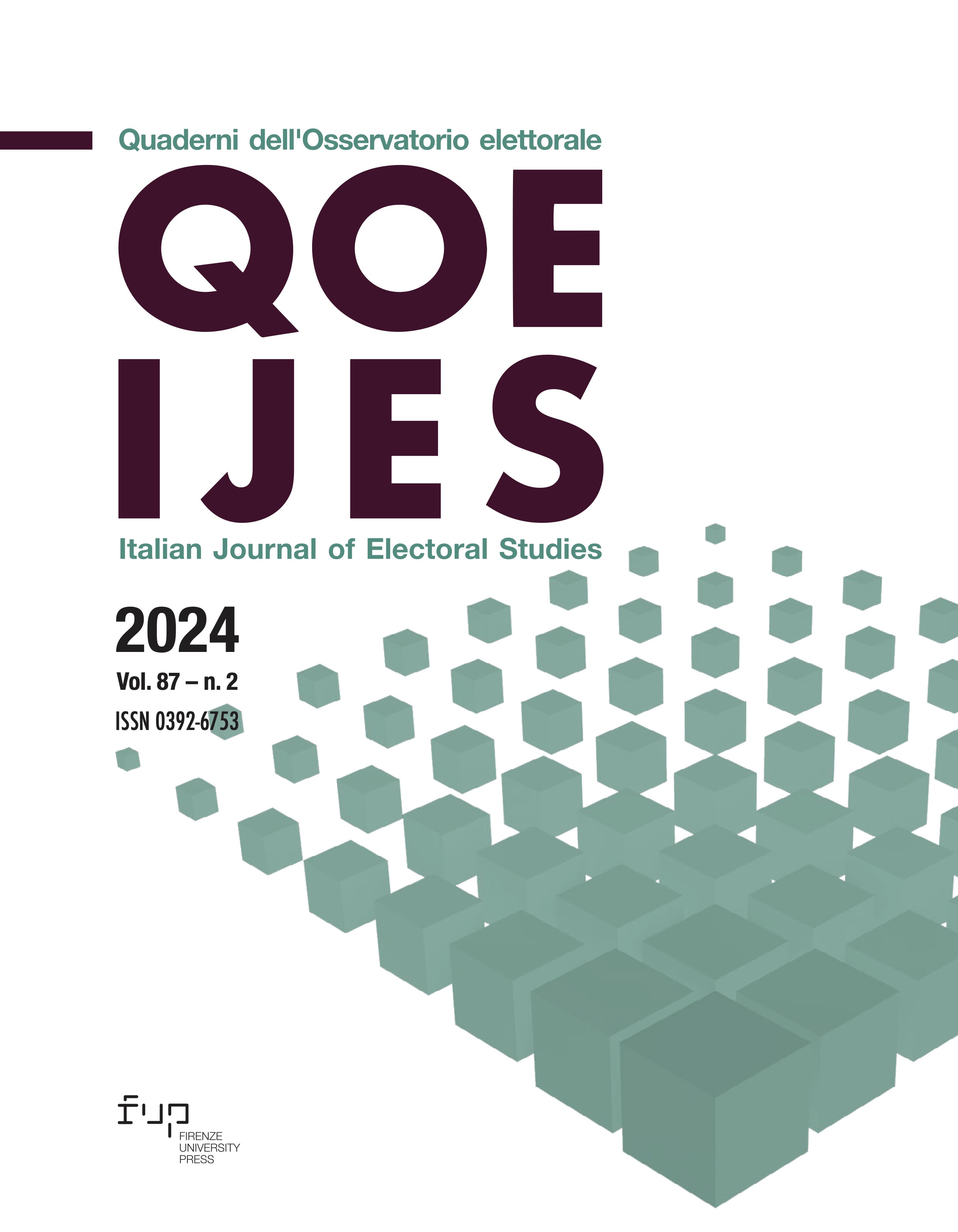Vol 87, No 2 (2024)
Issue Description
The new issue of QOE-IJES begins with an editorial note by Carlo Baccetti and Silvia Bolgherini written to remember Mario Caciagli, founder of the “Quaderni”, who passed away on May 17, 2024. The title of the article, “The most original and lasting invention of Mario Caciagli” perfectly summarizes the importance of that intuition of a few decades ago.
Then, the issue explores the interplay between political actors and structures, examining various dimensions of electoral behavior and political dynamics. The overarching theme is the relationship between individual agency and structural constraints in shaping political outcomes, particularly in the context of the 2022 Italian general elections.
The first article, “Actors and structures in politics” by Stefano Bartolini, presents a theoretical reflection on the connection between actors and structures in political science, emphasizing the importance of this perspective in understanding contemporary political processes. It advocates for a research agenda that bridges micro-level agency and macro-level structures without delving into the extensive theoretical debates on structuralism.
The second article, “Economic insecurity in the 2022 Italian general election: mobilization or withdrawal?” by Giacomo Salvarani, Fabio Bordignon and Luigi Ceccarini, analyzes the determinants of the electoral success of Giorgia Meloni’s Brothers of Italy (FdI) and its allies in the right-wing coalition. It challenges the common assumption that economic insecurity fueled the rise of populist radical-right parties. Instead, the study finds that economic insecurity deterred voter participation rather than mobilizing support for these parties, which gained traction primarily through anti-immigration sentiments.
Similarly, the third article (“Losers of globalization? Politics in the Prosecco Hills region in Italy as a case of radical rightwing populism in a (wealthy) rural area”, by Enrico Padoan and Lorenzo Zamponi) investigates the enduring support for radical right-wing populist parties (RRPPs) in an affluent italian’s region. Contrary to narratives framing RRPPs as champions of the ‘losers of globalization,’ the study highlights the role of producerism and localist sentiments in sustaining their electoral success. However, emerging tensions between producerist attitudes and growing environmental concerns may challenge this political alignment in the future.
The fourth article, “Did sexist voters bring Italy its first female Prime Minister?” written by Mauro Bertolotti, Laura Picciafoco and Patrizia Catellani, examines the impact of hostile sexism on voting behavior in the 2022 elections, particularly in the context of Giorgia Meloni’s leadership. While hostile sexism was associated with right-wing voting, this effect was moderated by voters’ evaluations of Meloni, demonstrating the complexity of gender-related attitudes in shaping electoral choices.
The final article, “The dark side of simultaneous elections. The case of Sicily in 2022 Italian national elections” by Danilo Di Mauro, Marco La Bella, assesses the effects of simultaneous elections on voter turnout and participation in Sicily. While the strategy of holding multiple elections on the same day slightly increased voter turnout, it also led to a higher incidence of invalid and blank votes, raising concerns about the potential confusion caused by differing voting rules.
Together, these contributions offer a multifaceted perspective on the structural and individual determinants of political behavior, providing valuable insights into the dynamics shaping contemporary democratic processes.

